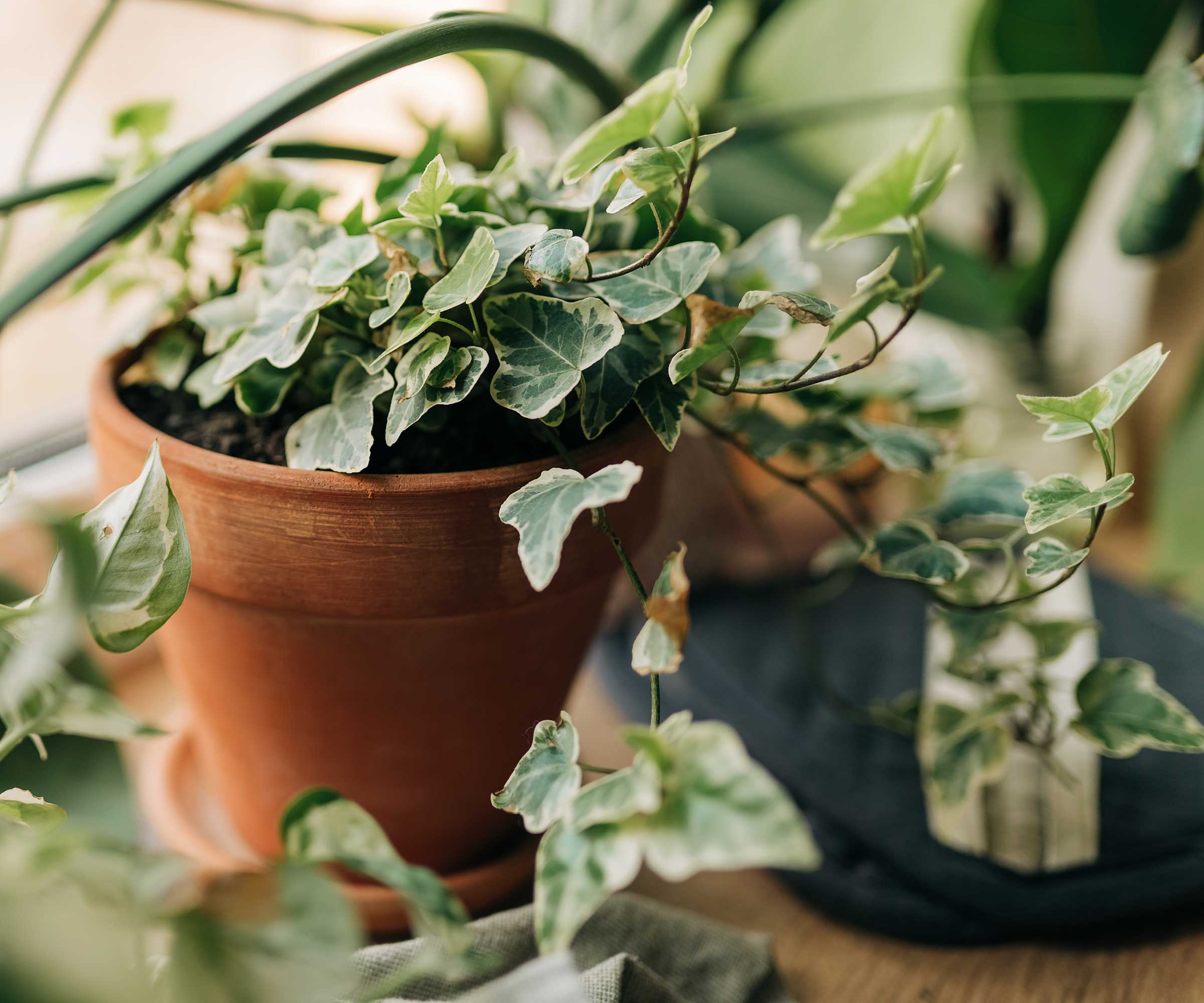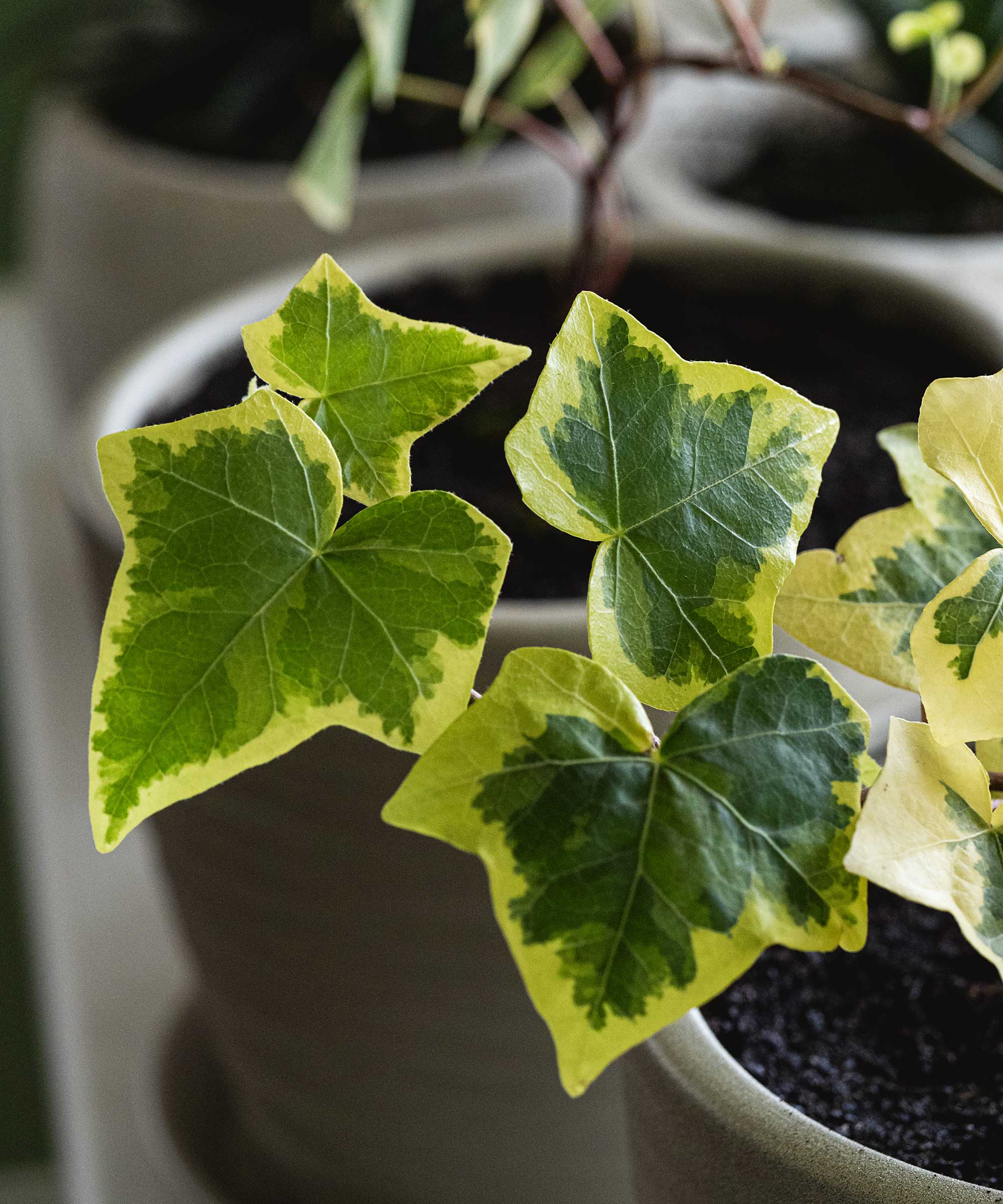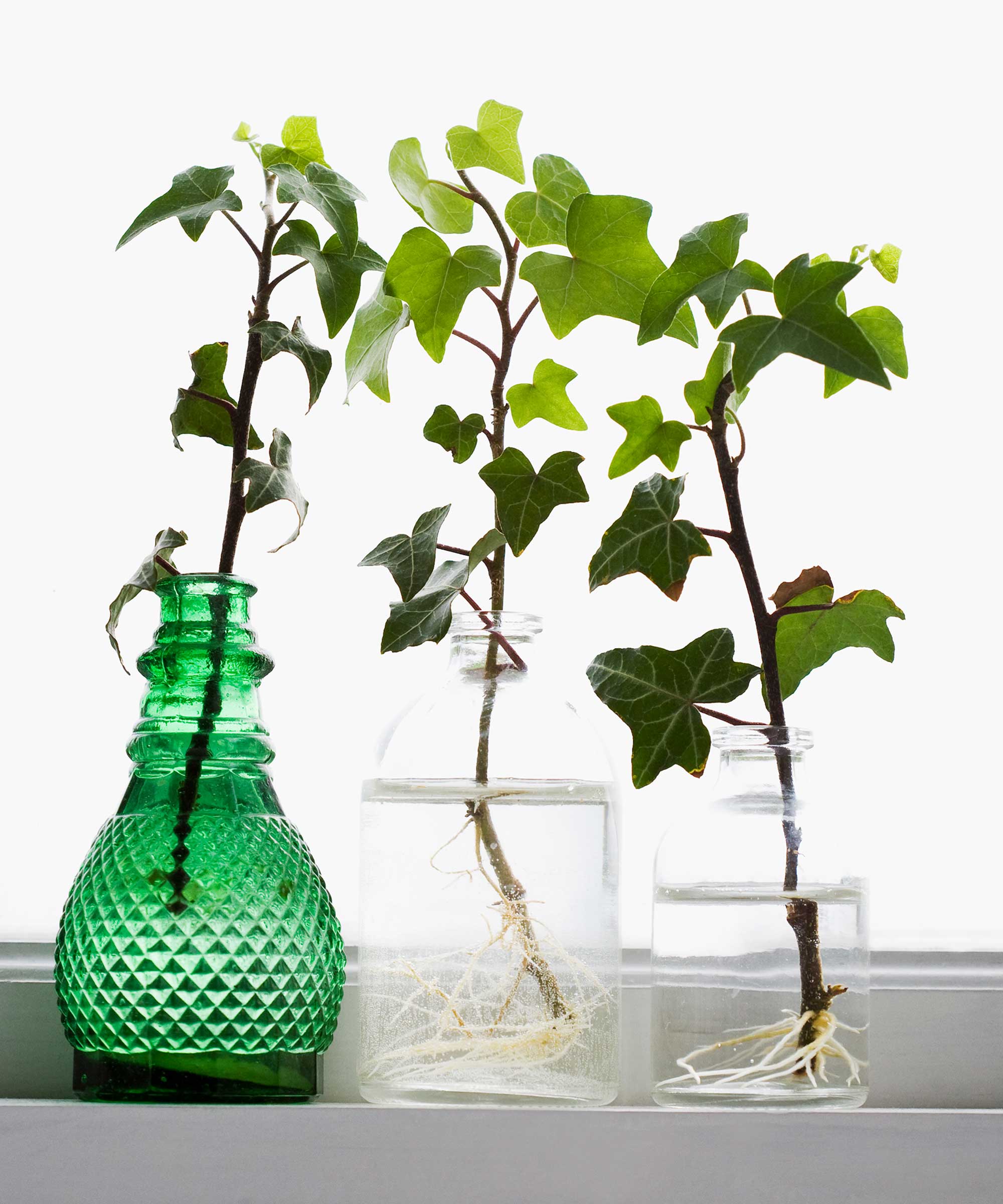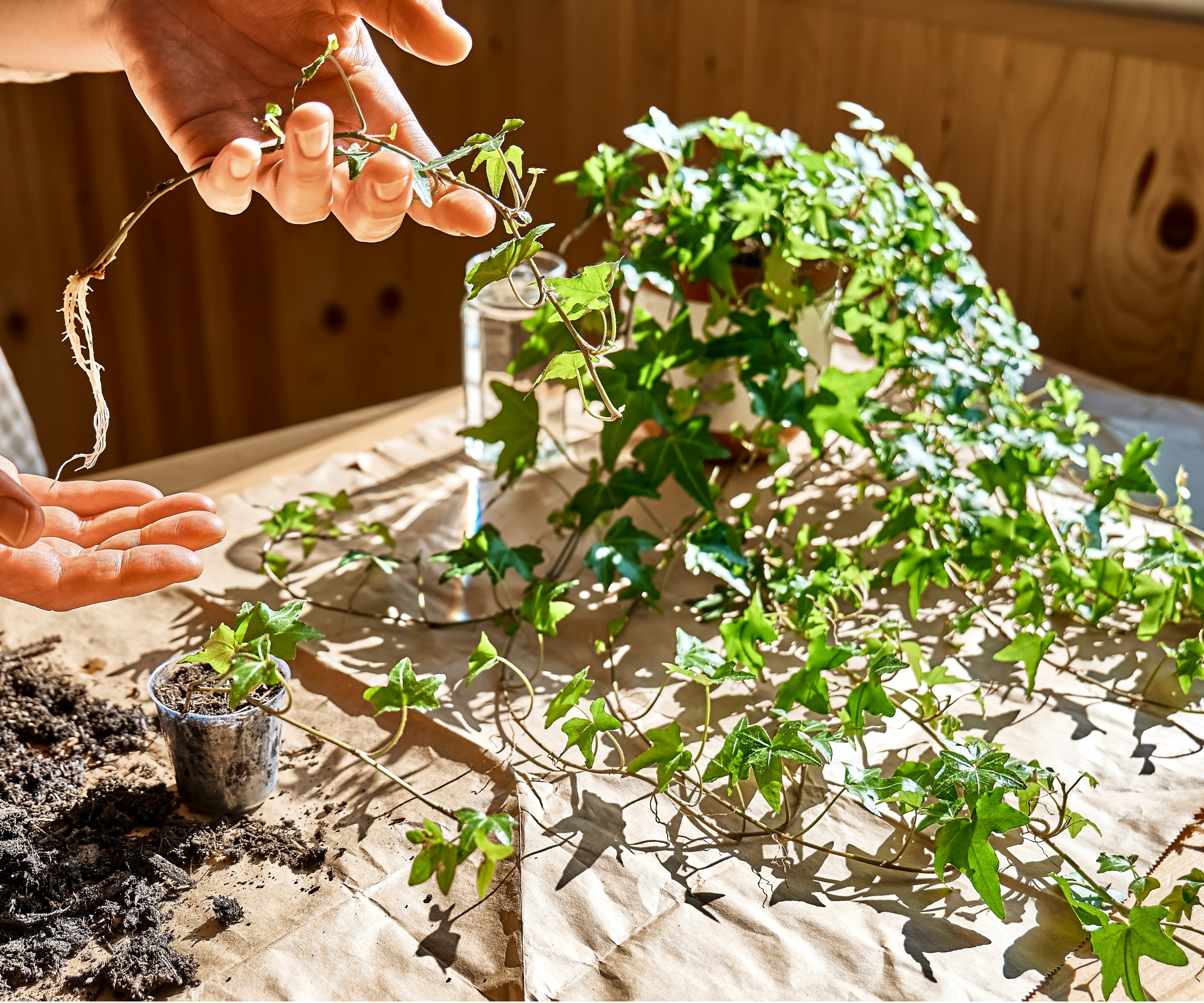How to propagate ivy in water – 3 simple steps for more low-maintenance trailing plants, both indoors and out
Ivy is easy to look after and well-suited for planting up high


Design expertise in your inbox – from inspiring decorating ideas and beautiful celebrity homes to practical gardening advice and shopping round-ups.
You are now subscribed
Your newsletter sign-up was successful
Want to add more newsletters?

Twice a week
Homes&Gardens
The ultimate interior design resource from the world's leading experts - discover inspiring decorating ideas, color scheming know-how, garden inspiration and shopping expertise.

Once a week
In The Loop from Next In Design
Members of the Next in Design Circle will receive In the Loop, our weekly email filled with trade news, names to know and spotlight moments. Together we’re building a brighter design future.

Twice a week
Cucina
Whether you’re passionate about hosting exquisite dinners, experimenting with culinary trends, or perfecting your kitchen's design with timeless elegance and innovative functionality, this newsletter is here to inspire
Ivy is one of the most adaptable plants to grow both indoors and outdoors. Compact varieties look good in interior schemes and are particularly effective trailing from a shelf or a mantelpiece. In backyards, more vigorous specimens are useful for quickly covering walls and trellises, plus, they're good for wildlife.
Not only is ivy care straightforward, but they're also easy to propagate by taking cuttings. While these can be rooted in soil, they can also be started off in jars of clean water. This is a well-favored approach as it allows you to watch the root system develop, which gives you a good indicator of when it's time to pot them up.
So, if you already have one ivy plant, why not have a go at making some more – for free? Just bear in mind that in some regions, this plant is considered invasive, so it's best to check before you put it in your yard.

Ivy is a versatile plant
5 easy steps to propagate ivy in water
Ivy is an easy houseplant to grow from cuttings with this beginner-friendly method. It's wise to wear gardening gloves (like these from Amazon) while doing so, as these plants can irritate the skin.
Here, gardening expert Tony O'Neill shares his step-by-step tips for propagating ivy in water:
1. Take ivy cuttings

The first thing you need to do is take your cuttings to propagate ivy in water. It isn't as simple as taking any size cutting at any point on the plant however.
You should choose a healthy ivy stem with at least four leaves, and cut just below a node (where the leaf joins the stem) using clean, sharp pruning tools (like these pruning shears from Amazon).
Design expertise in your inbox – from inspiring decorating ideas and beautiful celebrity homes to practical gardening advice and shopping round-ups.
Tony notes it's vital to then clean up your cuttings. This involves removing the bottom two or three leaves which will be submerged in water.
Leaving these lower leaves attached will just result in rotting plant matter.

Tony O'Neill is an accomplished gardening expert, author, and educator. With a passion for simplifying gardening practices, he has inspired a wide audience through his popular YouTube channel and website SimplifyGardening.com. Tony's expertise empowers individuals to cultivate thriving gardens and connect with nature.
2. Place ivy cuttings in water

'Place the cutting in a clear glass filled with water, ensuring the nodes where you removed the leaves are submerged, but keeping the top leaves above the water,' Tony says.
There are a few different vessels you can use for this. For example, Mason jars (from Walmart) will work just fine, or you can invest in a beautiful propagation station (like this one from Amazon) for something a little more aesthetically pleasing.
Essentially, you want any container that is clear, so you can observe the root development.
'Position the glass in a location with indirect sunlight. Too much direct sunlight can cause algae growth in the water,' Tony notes.
If you're struggling to find a spot with sufficient light, consider a grow light for houseplants. This grow light from Amazon would work well for propagating cuttings.
3. Keep the water fresh

To avoid water propagation mistakes, it's important to ensure the water is clean for your ivy cuttings. Failing to do so can seriously hinder your success when trying to propagate ivy in water.
'Replace the water at least once a week, or more often if it becomes dirty,' says Vladan Nikolic of the Mr. Houseplant blog.
Depending on the indoor growing system you have set up for your propagation, you may even choose to add a mini water pump (from Amazon). This can aid with keeping water clean.
'You should soon see roots developing from the submerged nodes. Once the roots are a few inches long, your ivy is ready to be potted in soil,' Tony says.

Vladan Nikolic, otherwise known as Mr. Houseplant, is a houseplant expert with over 10 years of experience. He is the Founder of the houseplant care blog MrHouseplant.com and also an influencer who helps newcomers in the houseplant world become great plant parents. You can find him on Instagram, TikTok, Youtube, Facebook, Twitter and Pinterest.
FAQs
How long does it take for ivy cuttings to propagate in water?
It doesn't take much time at all to propagate ivy cuttings in water. Look after the cuttings properly, avoiding the common water propagation mistakes, and roots should appear within just a few weeks.
Can I use a rooting hormone for ivy water propagation?
No, rooting hormone (like this rooting hormone powder from Amazon) is generally not used for any type of water propagation. This is because it is likely to just wash off in the water. However, when propagating ivy cuttings in soil, you can optionally dip the end of the cutting in a rooting hormone to speed up houseplant propagation.
Are there any other ways to propagate ivy?
Propagation via cuttings is the easiest and most popular way to grow more ivies for free.
Aside from taking cuttings, it's also possible to grow more ivies by sowing seeds, which are found within the blue-black berries that these plants produce. However, this is more time-consuming and complicated, as it's usually advised to store them somewhere cold for a month or two, and then soak them for 24 hours before planting them.
An alternative option is to propagate ivy by layering – a technique that can also be used for propagating hoyas (another trailing plant). 'Simply bend a stem down to the soil while still attached to the parent plant,' instructs Tony O'Neill of Simplify Gardening.
Remove a few of the leaves, then secure this section with a U-shaped stake and cover it with soil. Roots will develop from the nodes, Tony says. 'Once established, you can sever the new plant from the parent.'
Once established, consider planting your ivy in a hanging basket, either to brighten a corner of a room or to add interest to a porch.
Alternatively, use your new ivy plants as part of a fall patio display: plant them around the edges of mixed containers where they'll spill over the edge. Try a variegated variety alongside pansies and colorful heucheras for a pretty combination.

Holly started writing about gardening five years ago, and she is a regular contributor to Homes & Gardens. She has also written many gardening features for Woman & Home and Real Homes, too. She has previous experience as a professional gardener, where she helped to plant and maintain private gardens. Holly has also looked after allotment plots over the years and loves to grow her own flowers and veggies from seed. In her spare time, she enjoys visiting local gardens, botanical drawing, and tending to her ever-growing collection of houseplants.